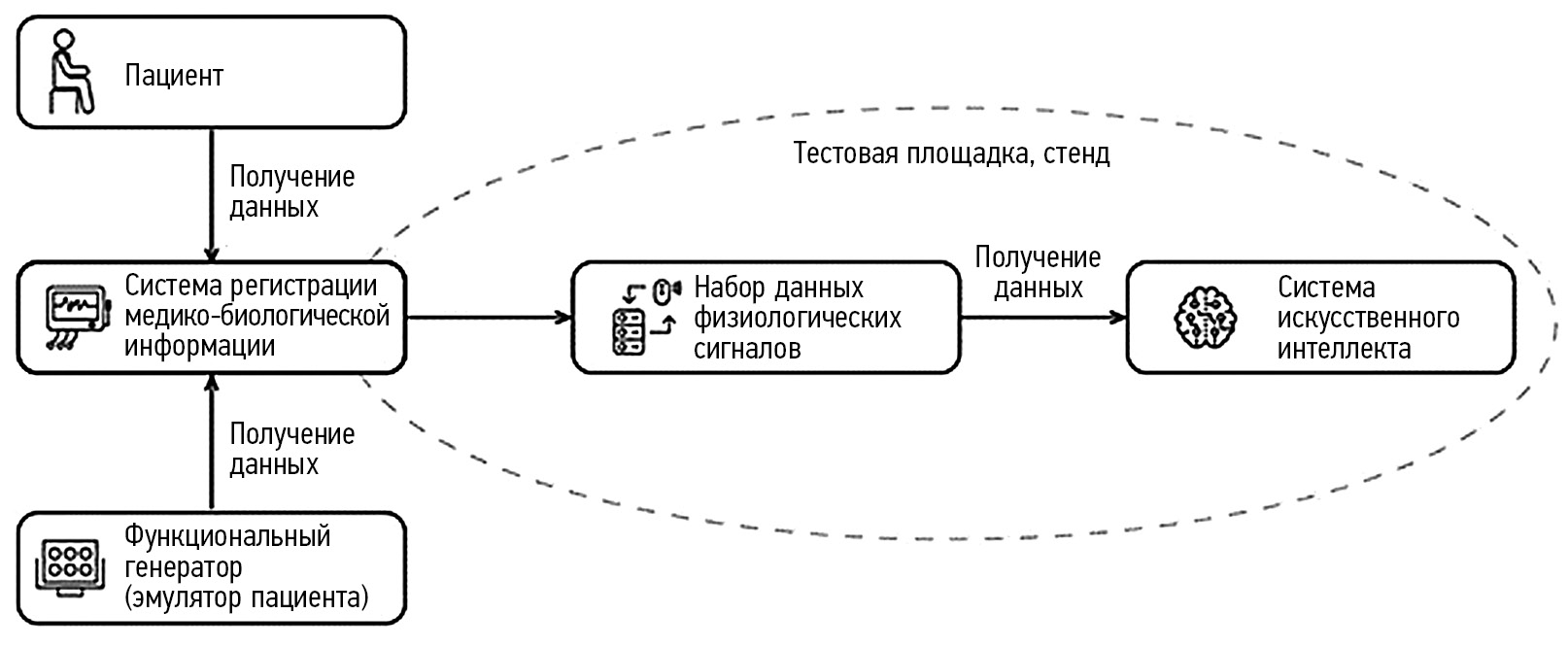Artificial intelligence in clinical physiology: How to improve learning agility
- Authors: Shutov D.V.1, Sharova D.E.1, Abuladze L.R.1, Drozdov D.V.2
-
Affiliations:
- Moscow Center for Diagnostics and Telemedicine
- National Medical Research Center of Cardiology
- Issue: Vol 4, No 1 (2023)
- Pages: 81-88
- Section: Correspondence
- URL: https://bakhtiniada.ru/DD/article/view/146878
- DOI: https://doi.org/10.17816/DD123559
- ID: 146878
Cite item
Abstract
Clinical physiology involves a complete, comprehensive, multilateral study of the functions of both affected and healthy organs, which allows us to assess the compensatory capabilities of the body.
Artificial intelligence is increasingly being used in medicine, including in clinical physiology. This is facilitated by the increase in computing processing power, development of cloud services and datasets, and numerous scientific articles demonstrating the effectiveness and viability of such intelligent solutions.
Although the approach to medical dataset development is generally similar, there are a number of key features and significant differences in clinical physiology. Artificial intelligence systems in clinical physiology may be effectively trained and applied in practice by following the recommendations in this study.
The national standard of the Russian Federation GOST R 59921.9-2022, which has entered into force, is included in the set of standards “Artificial Intelligence systems in clinical medicine” and establishes additional requirements for data analysis algorithms and test methods of artificial intelligence systems used in the field of clinical physiology. A crucial feature of the created standard is its qualimetric type (i.e., it has a mandatory set of demonstration data).
Russia is one of the first countries to start developing quasi-metric standards worldwide, and 15 industry standards in the field of artificial intelligence (2 of them in medicine) will come into force this year.
Full Text
##article.viewOnOriginalSite##About the authors
Dmitry V. Shutov
Moscow Center for Diagnostics and Telemedicine
Author for correspondence.
Email: ShutovDV@zdrav.mos.ru
ORCID iD: 0000-0003-1836-3689
SPIN-code: 9381-2456
MD, Dr. Sci. (Med.)
Russian Federation, MoscowDariya E. Sharova
Moscow Center for Diagnostics and Telemedicine
Email: ShutovDV@zdrav.mos.ru
ORCID iD: 0000-0001-5792-3912
SPIN-code: 1811-7595
Russian Federation, Moscow
Liya R. Abuladze
Moscow Center for Diagnostics and Telemedicine
Email: AbuladzeLR@zdrav.mos.ru
ORCID iD: 0000-0001-6745-1672
SPIN-code: 8640-9989
Junior Research Associate
Russian Federation, MoscowDmitrii V. Drozdov
National Medical Research Center of Cardiology
Email: cardioexp@gmail.com
ORCID iD: 0000-0001-7374-3604
SPIN-code: 2279-9657
MD, Cand. Sci. (Med.)
Russian Federation, MoscowReferences
- Kurzanov AN. Clinical physiology: formation, goals, tasks, limits of competence, place in the system of higher professional medical education. International journal of experimental education. 2012;(4):128–130. (In Russ).
- Gusev AV, Vladzimirsky AV, Sharova DE, et al. Development of research and development in the field of artificial intelligence technologies for healthcare in the Russian Federation: results of 2021. Digital Diagnostics. 2022;3(3):178–194. (In Russ). doi: 10.17816/DD107367
- Al-Mousily MF, Baker GH, Jackson L, et al. The use of a traditional nonlooping event monitor versus a loan-based program with a smartphone ECG device in the pediatric cardiology clinic. Cardiovasc Digit Heal J. 2021;2(1):71–75. doi: 10.1016/j.cvdhj.2020.11.008
- Ding EY, Pathiravasan CH, Schramm E, et al. Design, deployment, and usability of a mobile system for cardiovascular health monitoring within the electronic Framingham Heart Study. Cardiovasc Digit Heal J. 2021;2(3):171–178. doi: 10.1016/j.cvdhj.2021.04.001
- Bashar SK, Hossain MB, Lázaro J, et al. Feasibility of atrial fibrillation detection from a novel wearable armband device. Cardiovasc Digit Heal J. 2021;2(3):179–191. doi: 10.1016/j.cvdhj.2021.05.004
- Goodwin AJ, Eytan D, Greer RW, et al. A practical approach to storage and retrieval of high-frequency physiological signals. Physiol Meas. 2020;41(3):035008. doi: 10.1088/1361-6579/ab7cb5
- Bartlett VL, Ross JS, Shah ND, et al. Physical activity, patient-reported symptoms, and clinical events: Insights into postprocedural recovery from personal digital devices. Cardiovasc Digit Heal J. 2021;2(4):212–221. doi: 10.1016/j.cvdhj.2021.06.002
- Mishra S, Khatwani G, Patil R, et al. ECG paper record digitization and diagnosis using deep learning. J Med Biol Eng. 2021;41(4):422–432. doi: 10.1007/s40846-021-00632-0
- Kashou AH, Mulpuru SK, Deshmukh AJ, et al. An artificial intelligence-enabled ECG algorithm for comprehensive ECG interpretation: Can it pass the ‘Turing test’? Cardiovasc Digit Heal J. 2021;2(3):164–170. doi: 10.1016/j.cvdhj.2021.04.002
- Wagner P, Strodthoff N, Bousseljot RD, et al. PTB-XL, a large publicly available electrocardiography dataset. Sci Data. 2020;7(1):154. doi: 10.1038/s41597-020-0495-6
- Zheng J, Zhang J, Danioko S, et al. A 12-lead electrocardiogram database for arrhythmia research covering more than 10,000 patients. Sci Data. 2020;7(1):48. doi: 10.1038/s41597-020-0386-x
- M 80 Regulations for the preparation of data sets with a description of approaches to the formation of a representative sample of data. Part 1. Methodological recommendations. Ed by S.P. Morozov, A.V. Vladzimirsky, A.E. Andreichenko, et al. Moscow; 2022. 40 р. (The series “Best practices of radiation and instrumental diagnostics”). (In Russ).
Supplementary files











